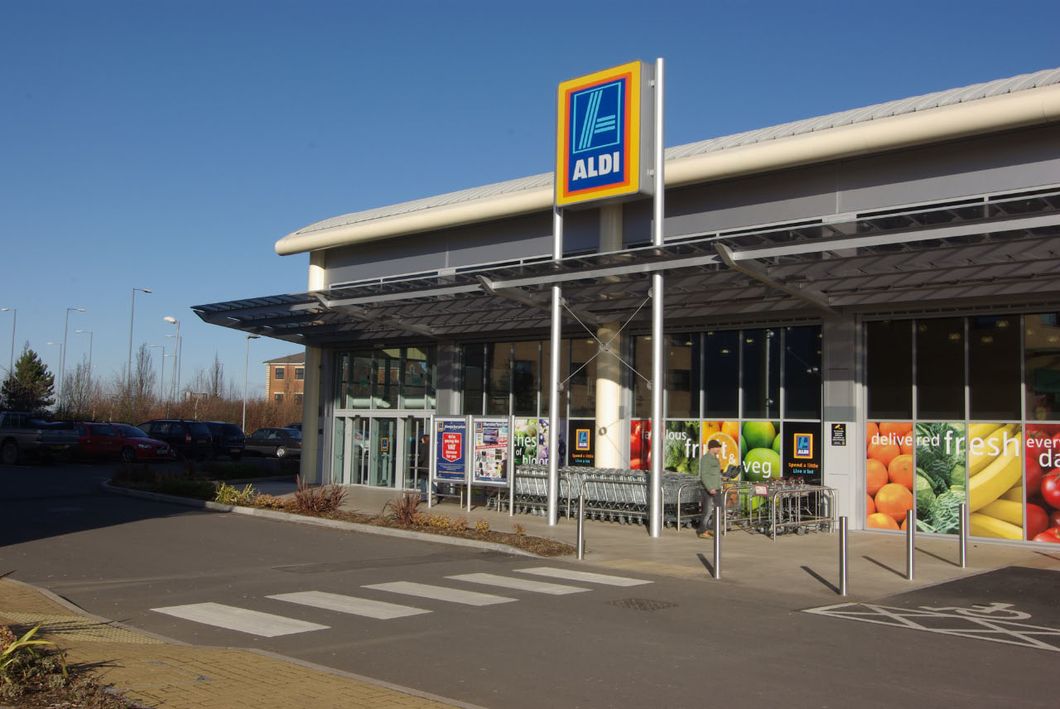While unusually low prices on items often mean low quality or some type of scandal hidden under the price, it's not necessarily the case with Aldi. Aldi keeps their prices at the bottom while still maintaining decent ethical standards and product quality. They have even won numerous awards for some of their branded products, including rosé wine, cheese, nectar juice and pasta sauce.
The physical structure and operation of Aldi stores play an important role in cutting costs. Aldi has very specific requirements for how each new store is located and built to ensure that they maximize long-term profitability. The stores are required to be located near street corners and next to other stores to make sure that there are plenty of customers around. The relatively small footprint of an Aldi store lowers its real estate costs. Most stores are made with high-quality durable materials, which lowers the long-term maintenance and replacement costs.
Most stores utilize energy management systems, high-efficiency freezers, heat recovery systems and LED lighting and some even install solar panels to further reduce energy consumption. Aldi stores also don't open past 9 p.m. since not as many people shop late at night. Energy efficiency and earlier closing times also improve the overall outlook of the company in that they are doing their part to reduce carbon emissions and respect residents that live near the immediate area.
In addition to how Aldi stores are built and operated, the packaging and variety of products that they offer are also important to reduce costs. Many of the items that they sell are packaged in vacuum sealed bags to allow more packages to be loaded on to trucks. Products are packed in specially designed crates that can be added directly to the store shelves. Their lack of variety in fresh produce reduces food waste. Aldi sells mostly their own brand because they have greater control over the quality of the products and their supply chain. Having most items they sell be their own brand also allows them to have shipments delivered just in time, which means they don't need extra storage space. Since they don't carry much from other brands, they can order more of each product, which further reduces the price through bulk buying. Because customers don't have to choose between multiple brands, shopping trips can be done more quickly.
Of course, the employees and customers also play a role in keeping prices low. Store employees take on multiple roles from cashier to the stocker, which reduces downtime and the number of employees per store that needs to be hired. On the other hand, store employees are paid better than in other retail chains and given benefits. Aldi stores don't give out free plastic bags, further reducing overhead costs. They also have a designated area for customers to bag their groceries, which speeds up the check-out lines. Aldi stores also don't hire people to move shopping carts. Customers are charged a quarter to used a cart and get refunded once the cart is returned to the front of the store. The practice of charging shoppers for shopping carts and disposable bags encourages the customer to take more responsibility by making them their return carts to the front of the store and bring their own bag when shopping.
Aldi keeps prices low by improving the energy efficiency of stores, creating more efficient packaging, selling their own brand, and giving customers more responsibility. They have managed to reduce their environmental footprint and improve social responsibility in the process of doing so. Their savings are then passed on to consumers who can now buy groceries quickly and cheaply.
DISCLAIMER: I was not sponsored in any way by Aldi to write this article, this content is all my own opinion and facts I gathered from various videos and articles relating to Aldi.































